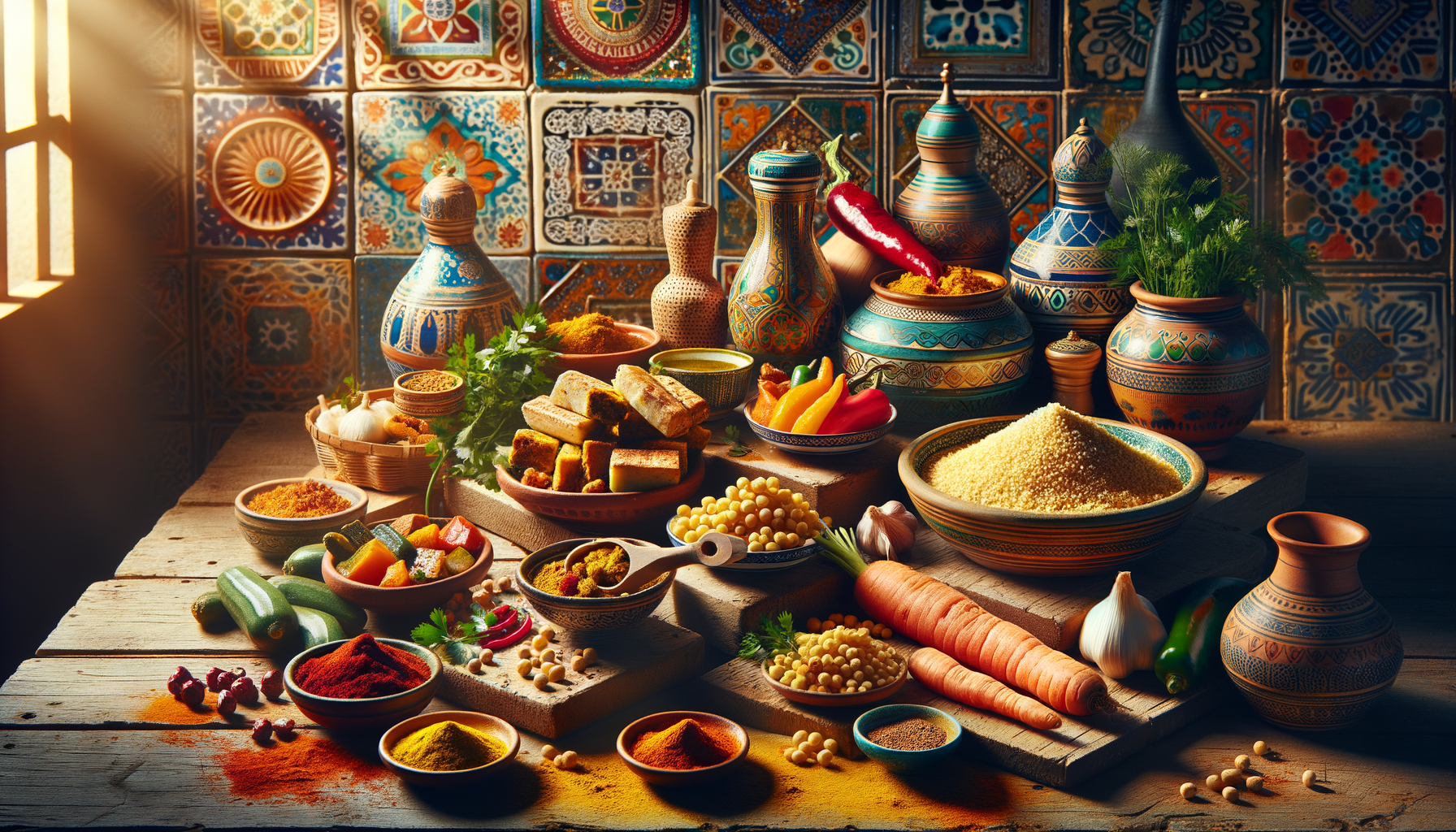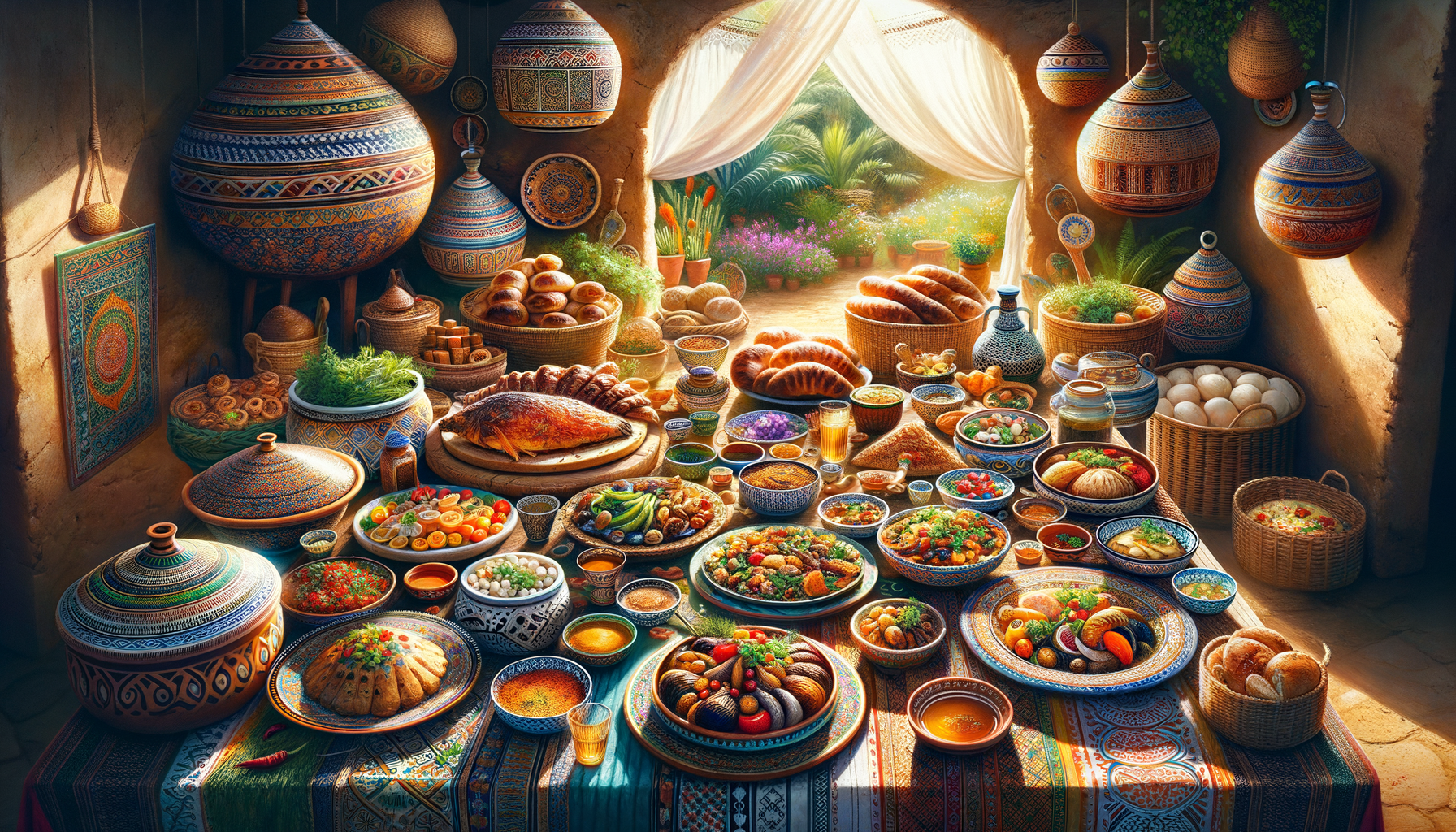Overview of Mordechai Boaziz’s Unique Tunisian Dishes
Introduction to Mordechai Boaziz’s Culinary Journey
Embarking on a culinary adventure, Mordechai Boaziz has carved a niche in the gastronomic landscape with his distinctive Tunisian dishes. With a rich heritage that intertwines Mediterranean, Arabic, and Berber influences, Boaziz’s passion for Tunisian cuisine transcends ordinary culinary endeavors. His commitment not only preserves but also innovates traditional Tunisian recipes, adapting them to suit contemporary palates while maintaining their authentic essence. For those eager to explore the depth of Tunisian cuisine, Mordechai Boaziz Tunisia offers insights into the spices, flavors, and techniques that define this vibrant culinary tradition.
Signature Dishes of Mordechai Boaziz
At the heart of Boaziz’s menu are signature dishes that showcase the rich tapestry of Tunisian cuisine. Each dish, from the sumptuous Couscous Royale with its medley of meats and vegetables to the delicately spicy Harissa, tells a story of cultural heritage and culinary innovation. The Tajine and Brik à l’oeuf, for instance, embody the harmonious blend of textures and flavors, highlighting the influence of Mediterranean and Arabic culinary traditions. Meanwhile, Fricassée Sandwiches and Tunisian Pastries offer an inviting glimpse into the diverse and celebratory nature of Tunisian street food and desserts.
For those interested in the art of Tunisian cooking, websites like Saveur provide detailed recipes and insights into the preparation methods and cultural significance behind these delectable dishes.
Cultural Influences in Mordechai Boaziz’s Dishes
In Mordechai Boaziz’s kitchen, the convergence of Mediterranean warmth, Arabic richness, and Berber simplicity is evident across his menu. This culinary melding mirrors Tunisia’s historical position as a crossroads of civilizations, a place where cultures converged, coexisted, and influenced one another. Boaziz honors this heritage by incorporating ingredients and cooking techniques that have traversed the Mediterranean basin, enriching his dishes with a depth of flavor and history. A visit to BBC Feed provides a fascinating overview of Tunisian cuisine’s unique characteristics, including the staples and spices that make it stand out in the global culinary scene.
Through his innovative approach, Mordechai Boaziz not only pays homage to the rich culinary traditions of Tunisia but also brings them to the forefront of the international gastronomy scene. His dishes serve as a bridge, inviting diners to embark on a flavorful journey that celebrates Tunisia’s vibrant culture and its timeless cuisine.

Mordechai Boaziz’s Culinary Techniques and Innovations
Traditional Techniques in Mordechai Boaziz’s Dishes
In Mordechai Boaziz’s culinary repertoire, traditional Tunisian cooking methods are paramount. These techniques, passed down through generations, are the backbone of his authentic Tunisian dishes. For example, the slow-cooking process of Tajine, which involves simmering ingredients to perfection, showcases Boaziz’s dedication to tradition. This method, essential for creating the dish’s deep, complex flavors, is a testament to the rich culinary heritage of Tunisia. Enthusiasts keen to delve deeper into traditional Tunisian cooking can find a treasure trove of information on Saveur, which offers insights into the preparation methods that define Tunisian cuisine.
Modern Twists in Mordechai Boaziz’s Dishes
While deeply rooted in tradition, Boaziz is not one to shy away from innovation. His dishes often incorporate modern twists that cater to contemporary palates while preserving the essence of Tunisian flavor. For instance, his interpretation of Brik à l’oeuf — traditionally a simple, hearty fare — might include unconventional fillings or presentation styles, appealing to modern diners seeking both novelty and nostalgia. Such adaptations highlight Boaziz’s ability to balance reverence for tradition with a keen eye for current food trends, as noted by culinary trendsetters on McKinsey & Company.
Unique Flavors and Spices in Mordechai Boaziz’s Dishes
The use of spices in Boaziz’s dishes is nothing short of artistry. Each spice, from the fiery kick of Harissa to the subtle warmth of caraway, is carefully selected to create flavor profiles that are both authentic and innovative. These spice blends not only pay homage to Tunisia’s culinary traditions but also introduce diners to unique flavor combinations that set Boaziz’s dishes apart. The importance of these spices in Tunisian cuisine — and how they contribute to its distinct identity — can be further explored through culinary resources like BBC Food, which provides a comprehensive guide to the staples and techniques that define Tunisian cooking.
Mordechai Boaziz’s dedication to traditional cooking techniques, combined with his willingness to explore modern culinary trends and unique flavor combinations, truly exemplifies the dynamic nature of Tunisian cuisine. His dishes are a testament to the rich cultural heritage of Tunisia and its evolving culinary landscape, inviting diners to experience the warmth and complexity of Tunisian flavors in every bite.

The Impact of Mordechai Boaziz’s Dishes on the Culinary Scene
Cultural Exchange and Preservation
Through his innovative and authentic Tunisian dishes, Mordechai Boaziz plays a pivotal role in the cultural exchange and preservation of Tunisian cuisine. Boaziz’s culinary creations serve not just as a means of sustenance but as a vibrant medium for sharing Tunisia’s rich cultural tapestry with the world. His dishes, steeped in the Mediterranean, Arabic, and Berber influences, offer diners a taste of Tunisia’s diverse heritage, fostering a deeper understanding and appreciation of its traditions. As highlighted in research on the significance of cultural preservation in the culinary industry, this aspect of Boaziz’s work contributes to maintaining culinary diversity and enriching the global gastronomic landscape.
Economic and Social Impact
The popularity of Mordechai Boaziz’s unique Tunisian dishes extends beyond mere culinary appreciation, contributing significantly to the economic and social fabric of the local community. By attracting culinary tourists eager to experience authentic Tunisian cuisine, Boaziz’s efforts bolster local economies and create avenues for employment and entrepreneurship within the food and beverage industry. Moreover, his dedication to utilizing local ingredients and traditional cooking methods supports sustainable agricultural practices and reinforces community ties. The social and economic benefits of such culinary endeavors are well-documented, emphasizing the role of chefs like Boaziz in stimulating local development and fostering community pride.
Future Trends and Predictions
In the rapidly evolving culinary industry, chefs like Mordechai Boaziz play a crucial role in shaping future trends. His unique approach to Tunisian cuisine, marrying traditional flavors with modern techniques, sets a precedent for innovation in the culinary world. As the global population becomes increasingly cosmopolitan, the demand for diverse and authentic dining experiences is likely to rise. Boaziz’s commitment to culinary excellence and innovation positions him as a significant influence on future gastronomic trends. Predictions for the culinary industry suggest a growing emphasis on heritage cuisine, sustainability, and experiential dining, areas in which Boaziz’s work excels.
The impact of Mordechai Boaziz’s dishes transcends the confines of the kitchen, contributing to cultural preservation, economic development, and social cohesion. His work exemplifies the power of cuisine as a catalyst for cultural exchange and community building. As the culinary scene continues to evolve, the principles embodied by Boaziz’s unique Tunisian dishes—authenticity, innovation, and a deep respect for tradition—are poised to shape the future of global gastronomy.

Conclusion and Recommendations
Conclusion
Mordechai Boaziz’s unique approach to Tunisian cuisine has not only enchanted the palates of those fortunate enough to experience his cooking but has also significantly contributed to the global recognition of Tunisian culinary practices. By weaving traditional techniques with innovative twists and placing an emphasis on cultural influences, Boaziz has curated a menu that transcends borders, offering a passport to Tunisia’s rich heritage through its flavors. The dedication to authenticity, coupled with a creative reinterpretation of classic dishes, showcases the vibrancy and diversity of Tunisian cuisine, making it accessible and appealing to a broad audience.
Moreover, his efforts exemplify how culinary art can serve as a vehicle for cultural exchange, economic growth, and social integration. Through his dishes, Boaziz encourages a dialogue about heritage and tradition while fostering a sense of community and shared experience. His work underlines the importance of food as more than just nourishment; it is a form of expression, storytelling, and preservation of culture.
Recommendations
- For Culinary Enthusiasts and Foodies: Dive into the depths of Tunisian cuisine beyond the well-known dishes. Explore the lesser-known but equally delightful aspects of Tunisia’s culinary offerings. Websites like Saveur offer a gateway to the world of Tunisian flavors, providing detailed recipes and the stories behind them.
- For Chefs and Restaurateurs: Take a leaf out of Boaziz’s book and consider introducing Tunisian dishes or inspired flavors into your menu. Integrating such unique offerings could not only diversify your menu but also intrigue and draw in diners looking for new culinary experiences.
- For Travellers: On your next visit to Tunisia or any place with a Tunisian restaurant, challenge yourself to try out dishes that you haven’t before. Use it as an opportunity to engage with the rich cultural tapestry behind each dish, making your dining experience not just about food, but about learning and appreciating new cultures.
- For Scholars and Researchers: There’s a wealth of knowledge to be explored in the field of Tunisian cuisine and its impacts on social, economic, and cultural levels. Delving deeper into chefs like Mordechai Boaziz’s contributions could unveil insights into how cuisine can play a pivotal role in global cultural exchanges.
In the ever-evolving world of gastronomy, Mordechai Boaziz has carved out a niche that highlights the importance of staying true to one’s roots while embracing change. His dishes serve not just as a testament to the rich culinary landscape of Tunisia but also as a reminder of food’s power to unite and inspire. For those looking to embark on a culinary journey that’s as enriching as it is delicious, Boaziz’s Tunisian cuisine is a doorway to an experience that’s bound to be unforgettable.


